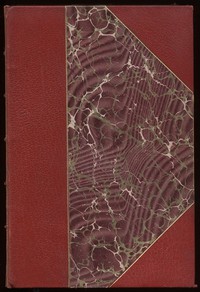Guy Mannering; or, The Astrologer — Complete by Walter Scott (good books to read in english .TXT) 📗

- Author: Walter Scott
Book online «Guy Mannering; or, The Astrologer — Complete by Walter Scott (good books to read in english .TXT) 📗». Author Walter Scott
He entered with a profound salutation to Sir Robert Hazlewood. Sir Robert, who had rather begun to suspect that his plebeian neighbour had made a cat’s paw of him, inclined his head stiffly, took snuff, and looked another way.
‘Mr. Corsand,’ said Glossin to the other yokefellow of justice, ‘your most humble servant.’
‘Your humble servant, Mr. Glossin,’ answered Mr. Corsand drily, composing his countenance regis ad exemplar, that is to say, after the fashion of the Baronet.
‘Mac-Morlan, my worthy friend,’ continued Glossin, ‘how d’ ye do; always on your duty?’
‘Umph,’ said honest Mac-Morlan, with little respect either to the compliment or salutation.
‘Colonel Mannering (a low bow slightly returned), and Mr. Pleydell (another low bow), I dared not have hoped for your assistance to poor country gentlemen at this period of the session.’
Pleydell took snuff, and eyed him with a glance equally shrewd and sarcastic. ‘I’ll teach him,’ he said aside to Mannering, ‘the value of the old admonition, Ne accesseris in consilium antequam voceris.’
‘But perhaps I intrude, gentlemen?’ said Glossin, who could not fail to observe the coldness of his reception. ‘Is this an open meeting?’
‘For my part,’ said Mr. Pleydell, ‘so far from considering your attendance as an intrusion, Mr. Glossin, I was never so pleased in my life to meet with you; especially as I think we should, at any rate, have had occasion to request the favour of your company in the course of the day.’
‘Well, then, gentlemen,’ said Glossin, drawing his chair to the table, and beginning to bustle about among the papers, ‘where are we? how far have we got? where are the declarations?’
‘Clerk, give me all these papers,’ said Mr. Pleydell. ‘I have an odd way of arranging my documents, Mr. Glossin, another person touching them puts me out; but I shall have occasion for your assistance by and by.’
Glossin, thus reduced to inactivity, stole one glance at Dirk Hatteraick, but could read nothing in his dark scowl save malignity and hatred to all around. ‘But, gentlemen,’ said Glossin, ‘is it quite right to keep this poor man so heavily ironed when he is taken up merely for examination?’
This was hoisting a kind of friendly signal to the prisoner. ‘He has escaped once before,’ said Mac-Morlan drily, and Glossin was silenced.
Bertram was now introduced, and, to Glossin’s confusion, was greeted in the most friendly manner by all present, even by Sir Robert Hazlewood himself. He told his recollections of his infancy with that candour and caution of expression which afforded the best warrant for his good faith. ‘This seems to be rather a civil than a criminal question,’ said Glossin, rising; ‘and as you cannot be ignorant, gentlemen, of the effect which this young person’s pretended parentage may have on my patrimonial interest, I would rather beg leave to retire.’
‘No, my good sir,’ said Mr. Pleydell, ‘we can by no means spare you. But why do you call this young man’s claims pretended? I don’t mean to fish for your defences against them, if you have any, but--’
‘Mr. Pleydell,’ replied Glossin, ‘I am always disposed to act above-board, and I think I can explain the matter at once. This young fellow, whom I take to be a natural son of the late Ellangowan, has gone about the country for some weeks under different names, caballing with a wretched old mad-woman, who, I understand, was shot in a late scuffle, and with other tinkers, gipsies, and persons of that description, and a great brute farmer from Liddesdale, stirring up the tenants against their landlords, which, as Sir Robert Hazlewood of Hazlewood knows--’
‘Not to interrupt you, Mr. Glossin,’ said Pleydell, ‘I ask who you say this young man is?’
‘Why, I say,’ replied Glossin, ‘and I believe that gentleman (looking at Hatteraick) knows, that the young man is a natural son of the late Ellangowan, by a girl called Janet Lightoheel, who was afterwards married to Hewit the shipwright, that lived in the neighbourhood of Annan. His name is Godfrey Bertram Hewit, by which name he was entered on board the Royal Caroline excise yacht.’
‘Ay?’ said Pleydell, ‘that is a very likely story! But, not to pause upon some difference of eyes, complexion, and so forth--be pleased to step forward, sir.’ (A young seafaring man came forward.) ‘Here,’ proceeded the Counsellor, ‘is the real Simon Pure; here’s Godfrey Bertram Hewit, arrived last night from Antigua via Liverpool, mate of a West-Indian, and in a fair way of doing well in the world, although he came somewhat irregularly into it.’
While some conversation passed between the other justices and this young man, Pleydell lifted from among the papers on the table Hatteraick’s old pocket-book. A peculiar glance of the smuggler’s eye induced the shrewd lawyer to think there was something here of interest. He therefore continued the examination of the papers, laying the book on the table, but instantly perceived that the prisoner’s interest in the research had cooled. ‘It must be in the book still, whatever it is,’ thought Pleydell; and again applied himself to the pocket-book, until he discovered, on a narrow scrutiny, a slit between the pasteboard and leather, out of which he drew three small slips of paper. Pleydell now, turning to Glossin, requested the favour that he would tell them if he had assisted at the search for the body of Kennedy and the child of his patron on the day when they disappeared.
‘I did not--that is, I did,’ answered the conscience-struck Glossin.
‘It is remarkable though,’ said the Advocate, ‘that, connected as you were with the Ellangowan family, I don’t recollect your being examined, or even appearing before me, while that investigation was proceeding?’
‘I was called to London,’ answered Glossin, ‘on most important business the morning after that sad affair.’
‘Clerk,’ said Pleydell, ‘minute down that reply. I presume the business, Mr. Glossin, was to negotiate these three bills, drawn by you on Messrs. Vanbeest and Vanbruggen, and accepted by one Dirk Hatteraick in their name on the very day of the murder. I congratulate you on their being regularly retired, as I perceive they have been. I think the chances were against it.’ Glossin’s countenance fell. ‘This piece of real evidence,’ continued Mr. Pleydell, ‘makes good the account given of your conduct on this occasion by a man called Gabriel Faa, whom we have now in custody, and who witnessed the whole transaction between you and that worthy prisoner. Have you any explanation to give?’
‘Mr. Pleydell,’ said Glossin, with great composure, ‘I presume, if you were my counsel, you would not advise me to answer upon the spur of





Comments (0)